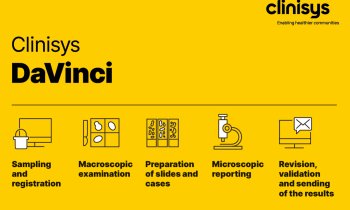Management
Labs need quality management systems
All laboratories should utilise quality monitoring systems and systematically work through their workflow processes to identify problem areas, according to Lucia Berte, who specialises in quality management systems in healthcare ancillary services through the Colorado-based organisation Laboratories Made Better.
Report: Mark Nicholls

Lucia Berte: ‘Laboratories in any country do not have unlimited financial resources,’ she acknowledges. ‘Therefore, it’s in the laboratory’s best interest to identify problematic processes that have high failure costs and then solve those problems to reduce the financial drain on the budget. Unfortunately, many administrators do not see the value of using money to prevent and measure activities that ultimately save money by reducing and eliminating failure costs.’
Under the title ‘Understanding and Fixing Recurring Costs of Bad Quality in Your Laboratory’, she told delegates at the recent Frontiers in Laboratory Medicine conference in Birmingham, England, ‘…this is an especially timely topic, as laboratories struggle with adding new methods and technologies while also being asked to reduce cost.’
Acknowledging that patients want quality care at the lowest reasonable cost, as do clinicians and administrators, she said applying the four types of quality costs – prevention, appraisal, internal failure and external failure – across all disciplines within the laboratory is a systematic way to manage a laboratory’s limited financial resources. A key way to do this, rather than use expensive commercially available software programmes to manage quality cost data, is instead to systematically track failure costs using simple spreadsheet software. Prevention entails focusing on areas such as quality planning, work process training, preventive maintenance and quality management activities that help to ensure laboratory work processes function as intended. Appraisal includes conducting on-going competence assessment, performing and reviewing quality control data and conducting internal audits to ensure that work already performed meets quality requirements.
Internal failure, she says, incurs costs that include anything from wasted blood components to insufficient or expired reagents or supplies or computer issues while external failures such as misdiagnosis, lost reports, reporting errors, lawsuits or customer complaints result in very high failure cost. ‘The laboratory can use quality measurement and monitoring data to identify problematic processes. These problems need to be prioritised according to the risks of severity and frequency they pose to patients. The prioritisation becomes a roadmap for laboratories to initiate improvement projects.’
Berte believes that laboratories must identify and quantify these costs and then tackle and remove the causes to begin to resolve problem areas that prevent labs from delivering high level services.
PROFILE:
With a 20-year history in healthcare management systems, Lucia Berte has a strong background in laboratory medicine, certifications as a medical technologist, specialist in blood banking, and a diploma in laboratory management. She has been a lab supervisor and manager, has experience in lab quality management and is a certified quality auditor and quality manager (in, for example, the medical laboratory, respiratory care, medical imaging, pharmacy, and rehabilitation). The author of numerous articles and books on quality management, she served for many years as a laboratory assessor, performing both readiness and conformance audits for laboratory and blood bank accreditation.
24.04.2015











